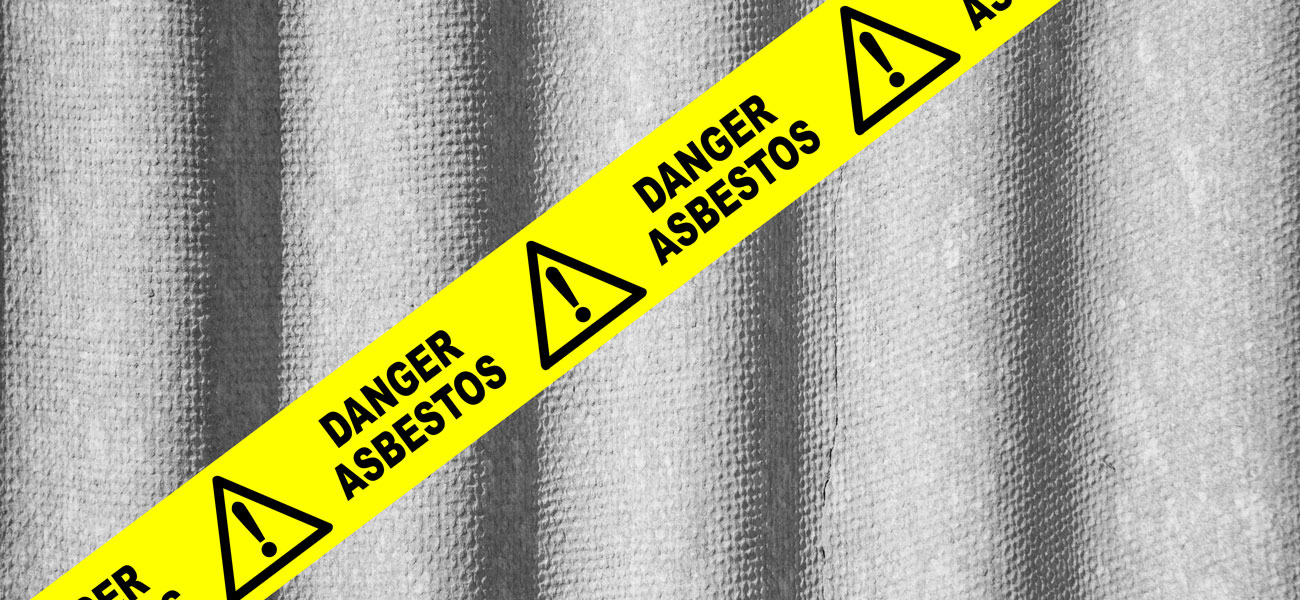We’re proud to announce that our most popular course is also our longest-serving. As of this month, SAMS has been offering the flagship UKATA Asbestos Awareness online course for 10 whole years – although we secretly hope it won’t be too many more (read on to find out why)!
The UKATA Asbestos Awareness course is the UK’s premier asbestos awareness training. It helps to give workers across all industries a base of knowledge to help them understand the dangers of asbestos exposure, to identify likely locations of asbestos containing materials (ACMs), and to take appropriate action if they find any on site.
Our UKATA Asbestos Awareness training has empowered thousands of workers over the years to keep themselves and their colleagues safe from asbestos exposure, and its harmful effects. Asbestos exposure has been conclusively linked to several forms of deadly cancer, including asbestosis, lung cancer, and the incurable cancer mesothelioma.
The importance of UKATA Asbestos Awareness training to SAMS has been reflected in our commitment to keep it as relevant, comprehensive and up-to-date as possible. During the pandemic, we actually invested in a complete overhaul of our Asbestos Awareness training course, providing modern video tuition and making the course more intuitive and accessible.
This knowledge about asbestos continues to be important because asbestos isn’t going away. ACMs are still present in thousands of public buildings, including a majority of UK schools and hospital trusts, as well as an untold number of private buildings. The increasing age of these ACMs is increasing the risk of degradation, and ultimately of asbestos exposure.
This is why we say that we hope not to be offering the course in another 10 years time! It’s an unfortunate reality that workers still have to be trained to recognise ACMs and the dangers of asbestos, because it still remains in large quantities in buildings and on worksites around the country. This can’t continue for much longer, or the risks will keep increasing.
The current policy on asbestos is generally to maintain and monitor it if it’s deemed to be in good condition, and thus at low risk of contamination. But the fact is that there’s no safe level of asbestos exposure, meaning any contamination is too much. And when ACMs are fifty years old or more, the chances of them degrading or being accidentally damaged are only going to increase.
This is exacerbated by lax attitudes on asbestos. Some dodgy businesses continue to work with asbestos without proper provisions, including a lack of Asbestos Awareness training and appropriate respiratory protection or ventilation. The HSE meanwhile has seen its funding reduced in recent years, and reportedly struggles to inspect enough sites to enforce the rules effectively.
The good news is that MPs appear to have noticed the issue, and are trying to take action. A recent parliamentary committee found that both asbestos regulations and their enforcement are lacking, and that more action needs to be taken to remove asbestos. But with people constantly being exposed and put at risk of life-threatening conditions, this cannot come too soon.
Asbestos can be an easy problem to dismiss and push back because it lacks immediate consequences, as asbestos-related diseases often take several decades to develop. But the risk is that the current peak of historic asbestos exposures will be maintained, rather than declining. While people are no longer working directly with asbestos, a lack of exposure and consideration of the issue could combine with degrading asbestos, and lead to a new crisis.
SAMS is proud to offer UKATA Asbestos Awareness training, and will continue to help educate workers across the country on how to protect themselves against this deadly threat. The hope is that through this ongoing education – and with action across industries and authorities – asbestos will soon become an issue of the past.

